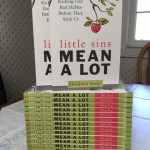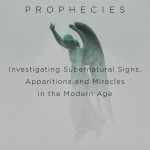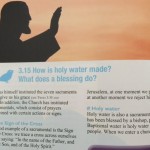On his whirlwind tour of Catholic blogs, today Fr. James Martin, S.J. lands here to visit with Anchoress readers and discuss his book, My Life With the Saints, (you can read Chapter 7, about Lourdes and St. Bernadette Soubirous here). But you can talk about anything you want -about other books, faith-in-general, the pope’s recent visit, the value of sacraments, whatever! Leave your questions or comments and I’ll post his answers here (and in subsequent posts).
Fr. Martin:
Many thanks to the Anchoress for inviting me to “visit” with you on her blog today. I’m very looking forward to hearing your comments, questions and insights on the saints, and how they influence our church, and our lives today.
Perhaps to get us started, I could throw out a question (though you can ask anything you would like to ask, of course). A central theme of my book My Life with the Saints is a quote from the Trappist monk Thomas Merton. (And before you object: yes, I know he’s not a saint!) In one of his books of meditations Merton wrote, “For me to be a saint means to be myself.” So what might that mean in your life? Ultimately, is that encouraging or discouraging?
If that question doesn’t grab you, how about this one: These days people seem very interested in seeing the saints as “human,” that is, we seem to want to understand them as they truly were—in all their humanity. Yet, sometimes, when they’re revealed as too human (as in Mother Teresa’s case, when she was revealed to have struggled with an intense experience of spiritual darkness), people sometimes question their sanctity. What is the relationship between humanity and holiness? Does holiness mean perfection?
Finally, do you think that Catholics overvalue the saints (as in: “Who needs to go to Mass when I can pray to St. Therese of Lisieux?”) or undervalue them (“Who needs the saints at all? They’re such a throwback.”) I’m curious what you all think!
No one every said my readers were shy (and they always ask good questions in a good way) so this should be fun.
Just a reminder: From now until June 8, you will be able to order My Life With the Saints at a 35% discount. Mention marketing code 2683 when ordering it either online at www.loyolabooks.com/martin or calling 800-621-1008.
I think I will start with the first question! Since I have been highlighting a different Chesterton quote each day, how does this one strike you? Can you share your thoughts or expound on it from a Catholic perspective?
“The truth is, of course, that the curtness of the Ten Commandments is an evidence, not of the gloom and narrowness of a religion, but, on the contrary, of its liberality and humanity. It is shorter to state the things forbidden than the things permitted: precisely because most things are permitted, and only a few things are forbidden.” – G. K. Chesterton, Illustrated London News 1-3-20
Fr. Martin’s Response:
Well, first of all, it strikes me as a typically rich, typically dense, typically Chestertonian insight! GKC is right, of course, that religion is about “liberality and humanity,” not “gloom and narrowness,” as most people mistakenly believe these days. The things that are forbidden are forbidden by God because God knows that these forbidden things would lead us only to death; God gives us those rules to move us toward life, in all its manifestations. It’s always amazing, at least to me, how many people in our world believe that religion turns you into a stony-hearted, narrow-minded, chilly-souled person, when in fact it’s just the opposite! When you think of the saints, their lives were marked not with “gloom and narrowness” but joy and openness. And the wonderful thing about the saints–of which it’s hard not be reminded of here, is that they show us that religion leads to joy because religion leads to God. As Leon Bloy said, “Joy is the surest sign of the Holy Spirit!”











